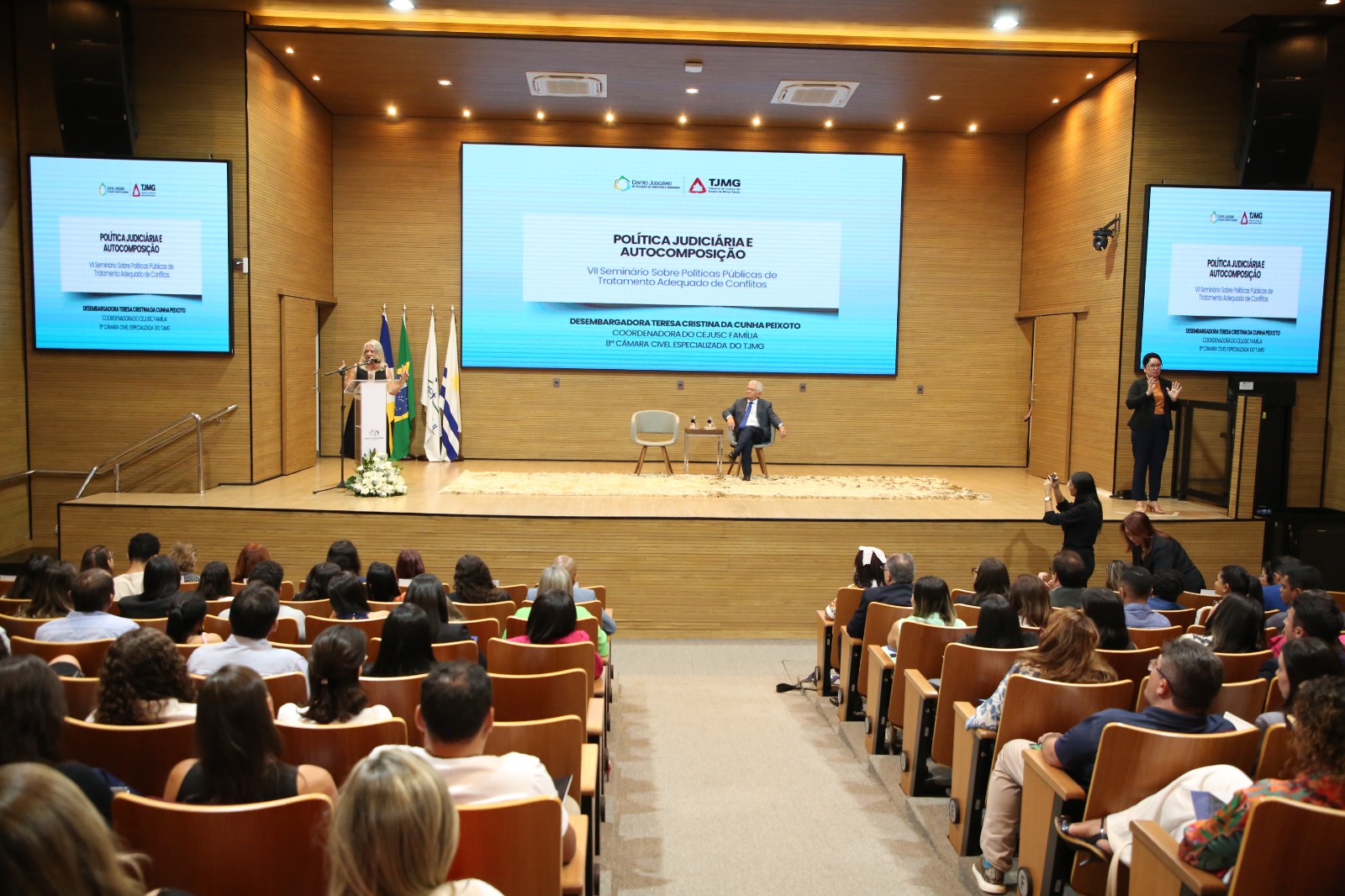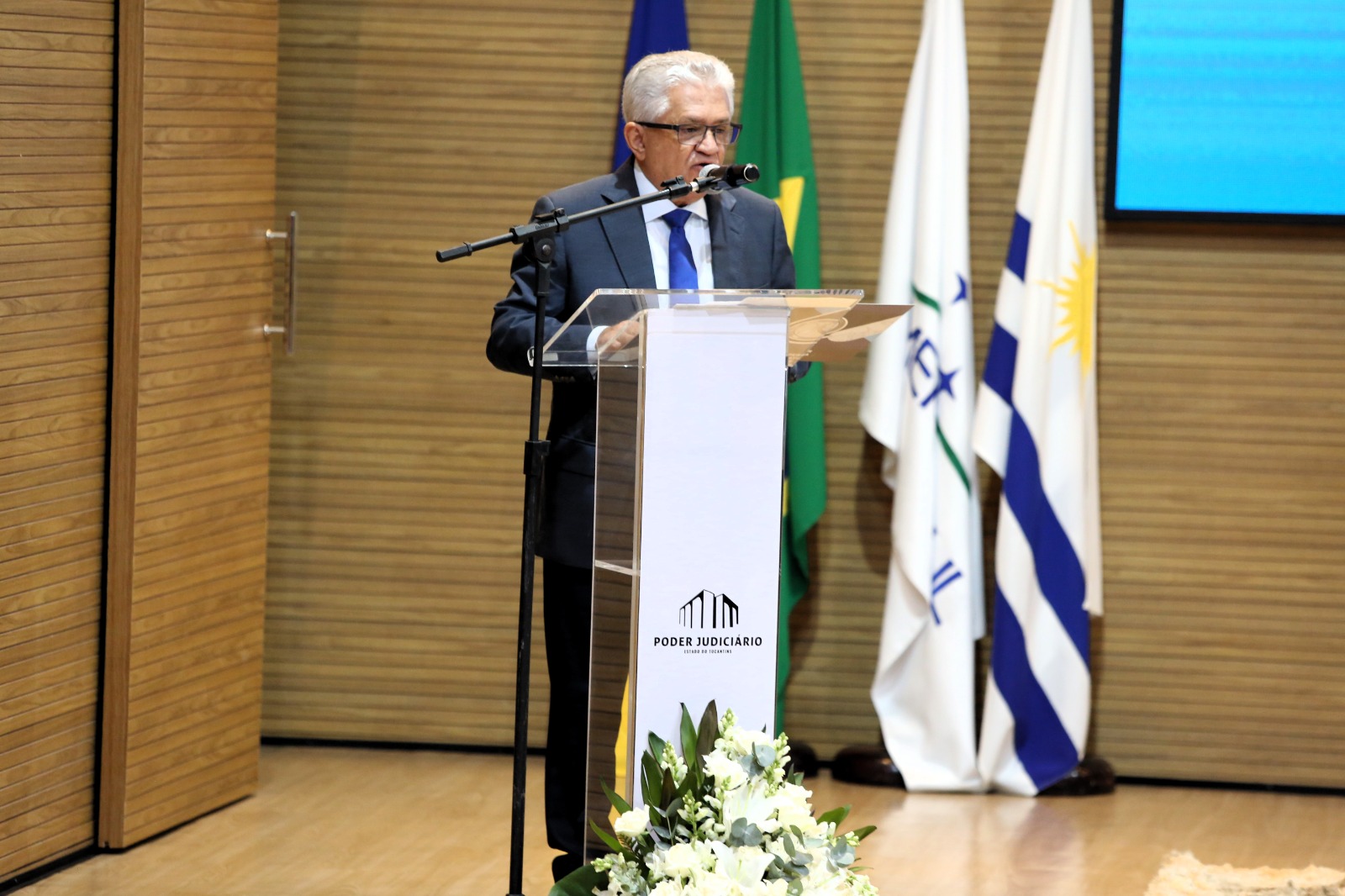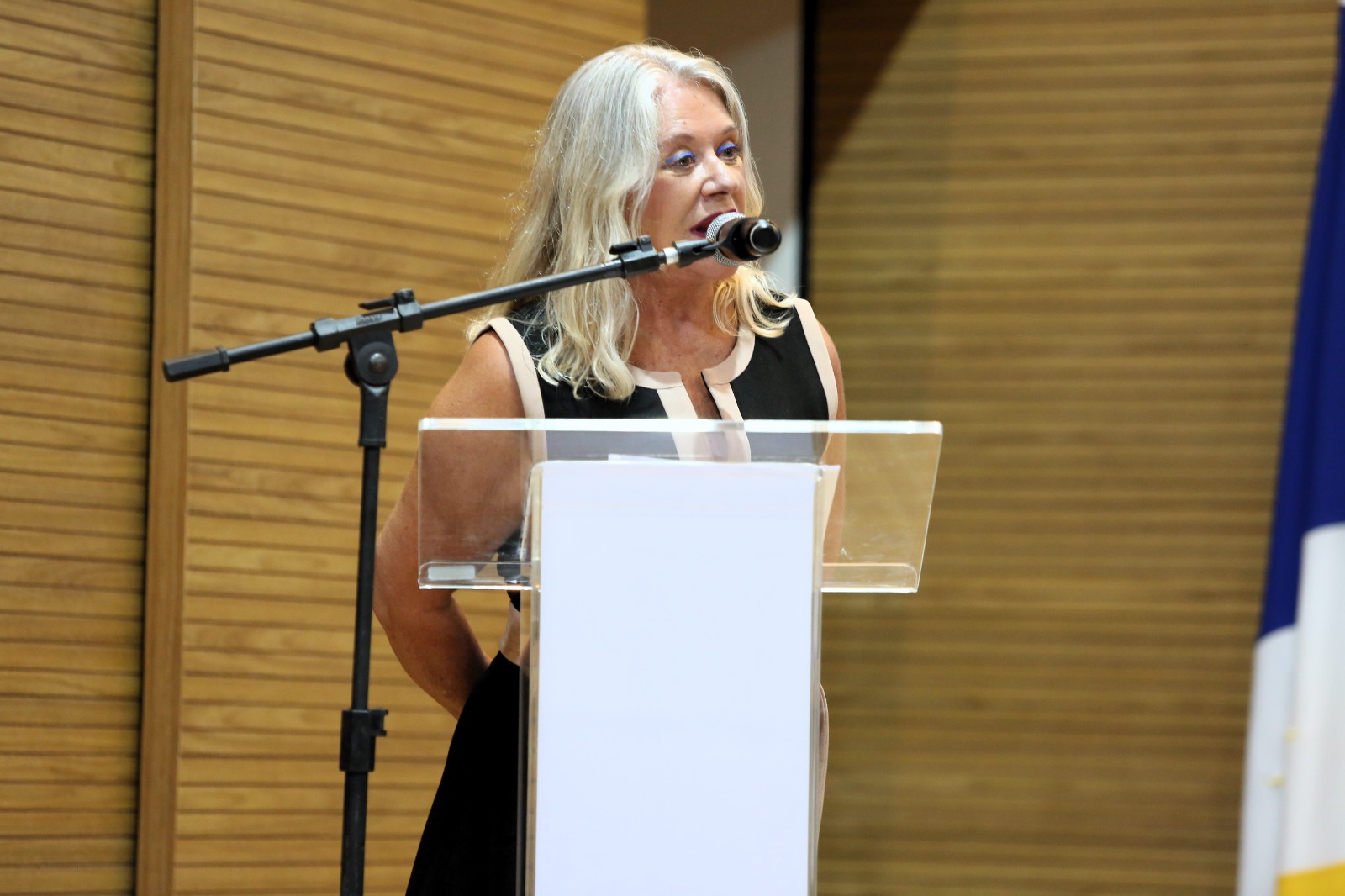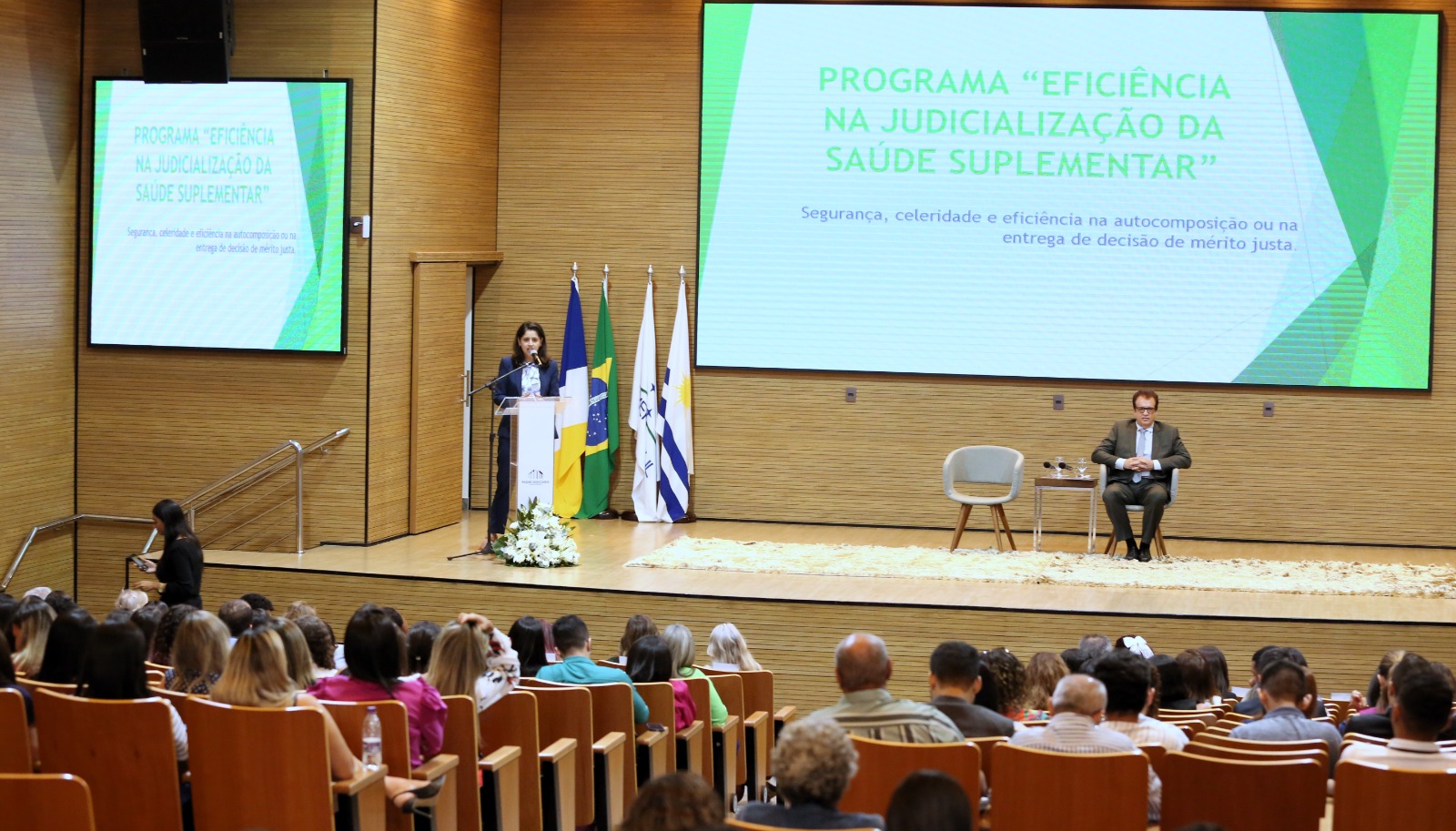
The search for innovative alternatives for resolving conflicts is one of the focuses of the Brazilian judiciary. With this in mind, the Permanent Center for Consensual Methods of Conflict Resolution (Nupemec), in partnership with the Superior School of the Judges of the State of Tocantins (Esmat), has been developing activities such as the VII Seminar on Public Policies for the Adequate Treatment of Conflicts and the 8th Meeting of the Judicial Centers for Conflict Resolution and Citizenship (Cejuscs), held this Friday (April 5th) in the auditorium of the Court of Justice of the State of Tocantins (TJTO).
With the aim of promoting self-composition and the use of appropriate methods for resolving conflicts, Justice Eurípedes Lamounier (TJTO) coordinated the first lecture of the event, the theme of which was "advantages and possibilities of Self-Composing Methods". In his speech, he highlighted the challenges faced in the search for conflict resolution and how self-compositional methods represent a promising alternative.
"Today, more than ever, we are challenged to find innovative and effective ways of dealing with disagreements in our personal and professional lives. Self-compositional methods offer a promising and empowering approach to resolving conflicts, highlighting their significant advantages. However, we cannot ignore the challenges in implementing these methods. It is essential to recognize that the litigious culture and the focus on self-compositional alternatives impose significant obstacles. In addition, developing communication, empathy and negotiation skills is crucial to the success of these initiatives," he said.
The speaker, Justice Teresa Cristina da Cunha Peixoto, from the Court of Justice of the State of Minas Gerais (TJMG), began her presentation by praising the Judiciary of the State of Tocantins for its majority female leadership.
"Coming from a more conservative background, I was delighted with the female leadership of the Court. This is the vanguard we need," she said.
The Justice emphasized the need for cultural change in universities and in all segments, citing the successful projects of the TJMG aimed at the proper handling of conflicts, such as the youth orchestra, the choir of children, among others.
"This is the redemption of the judiciary [public policies for dealing with conflicts properly]. We couldn't be more overwhelmed than we already are. There's no way we can produce more. We also need to introduce it in universities, in all segments. We need to change the culture (...). We need to turn to these alternative methods, which represent an effective judicial approach to resolve conflicts," she said, highlighting the faster solution, the reduction in costs and the role of the parties as some of the advantages of self-composing methods.
The second lecture of the day, presented by Judge Carla Melissa Martins Tria, from the Court of Justice of the State of Paraná (TJPR), and coordinated by Judge Nilson Afonso da Silva, coordinator of the Cejusc Polo of the District of Gurupi, dealt with the "Efficiency Program in the Judicialization of Supplementary Health - Civil Cejusc of the city of Curitiba".
In her presentation, Carla spoke about the importance of making efforts and forming partnerships to resolve health demands, highlighting the growing number of actions in this area.
"The number of health claims is growing every year - especially due to deficiencies in the public system and denials of coverage by supplementary health - and it requires our attention because health claims involve life, and health is a basic principle, it is inherent and a fundamental right," said the Judge.





